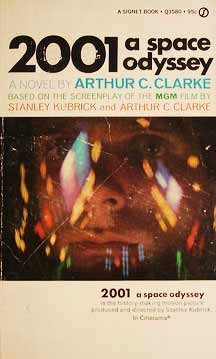 Science fiction pioneer Arthur C. Clarke has died at age 90 in Sri Lanka, where he had lived since 1956. Clarke wrote the short story on which Stanley Kubrick’s 2001: A Space Odyssey was based; his accompanying novel was actually completed after the film. In one of the most famous examples of science fiction becoming science fact, Clarke was the main proponent of the concept of geostationary satellites being used for communications (although whether he was the first to come up with the idea is apparently in doubt).
Science fiction pioneer Arthur C. Clarke has died at age 90 in Sri Lanka, where he had lived since 1956. Clarke wrote the short story on which Stanley Kubrick’s 2001: A Space Odyssey was based; his accompanying novel was actually completed after the film. In one of the most famous examples of science fiction becoming science fact, Clarke was the main proponent of the concept of geostationary satellites being used for communications (although whether he was the first to come up with the idea is apparently in doubt).
For an author so clearly interested in “hard” science (and who famously dismissed UFO enthusiasts as signs of how rare intelligent life is on Earth) there is a surprising level of mysticism in Clarke’s work, something evidenced by the third of his “three laws” governing prediction: “Any sufficiently advanced technology is indistinguishable from magic.” Clarke’s approach to the mystical (and mystifying) was one of both awe and humility, and while it’s Philip K. Dick’s dystopian paranoia that seems to best reflect our current reality, Clarke’s visions of the future are both reassuringly optimistic and comfortable with the universe’s mysteries.
Photo used under a creative commons license from Flickr user Travelin Librarian.















